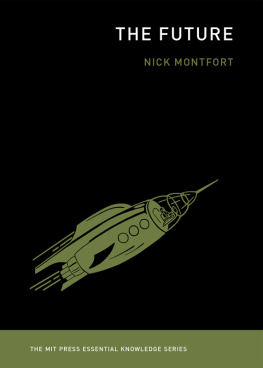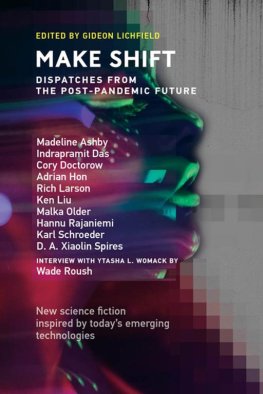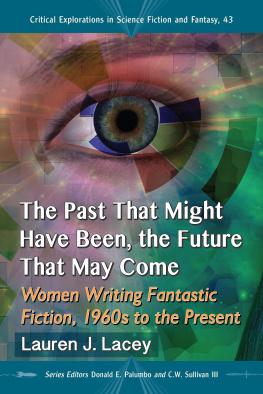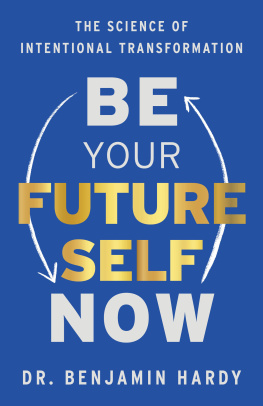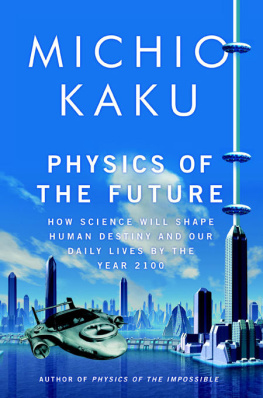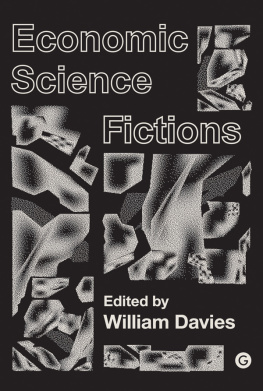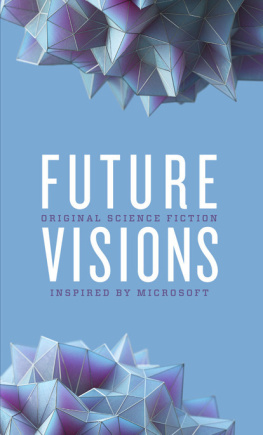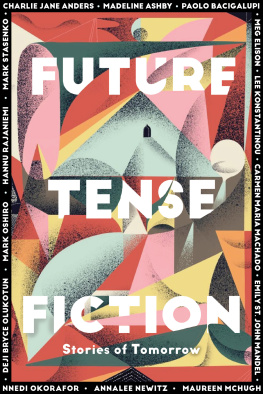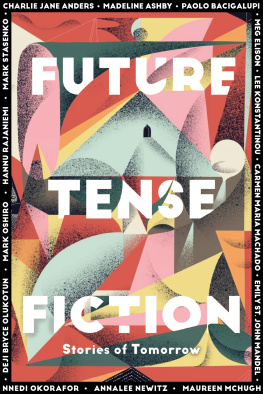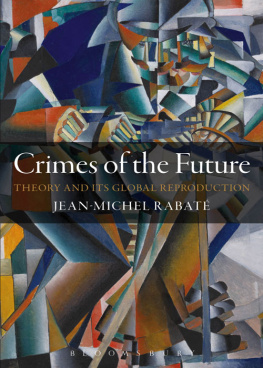
The MIT Press Essential Knowledge Series
Auctions, Timothy P. Hubbard and Harry J. Paarsch
Cloud Computing, Nayan Ruparelia
Computing: A Concise History, Paul E. Ceruzzi
The Conscious Mind, Zoltan L. Torey
Crowdsourcing, Daren C. Brabham
Free Will, Mark Balaguer
The Future, Nick Montfort
Information and Society, Michael Buckland
Information and the Modern Corporation, James W. Cortada
Intellectual Property Strategy, John Palfrey
The Internet of Things, Samuel Greengard
Machine Learning: The New AI, Ethem Alpaydin
Machine Translation, Thierry Poibeau
Memes in Digital Culture, Limor Shifman
Metadata, Jeffrey Pomerantz
The MindBody Problem, Jonathan Westphal
MOOCs, Jonathan Haber
Neuroplasticity, Moheb Costandi
Open Access, Peter Suber
Paradox, Margaret Cuonzo
Robots, John Jordan
Self-Tracking, Gina Neff and Dawn Nafus Sustainability, Kent E. Portney
The Technological Singularity, Murray Shanahan
Understanding Beliefs, Nils J. Nilsson
Waves, Frederic Raichlen
The Future
Nick Montfort
The MIT Press
Cambridge, Massachusetts
London, England
2017 Massachusetts Institute of Technology
All rights reserved. No part of this book may be reproduced in any form by any electronic or mechanical means (including photocopying, recording, or information storage and retrieval) without permission in writing from the publisher.
This book was set in Chaparral Pro and DIN Pro by Toppan Best-set Premedia Limited. Printed and bound in the United States of America.
Library of Congress Cataloging-in-Publication Data
Names: Montfort, Nick, author.
Title: The future / Nick Montfort.
Description: Cambridge, MA : MIT Press, 2017. | Series: The MIT Press essential knowledge series | Includes bibliographical references and index.
Identifiers: LCCN 2017019916 | ISBN 9780262534819 (pbk. : alk. paper)
eISBN 9780262344746
Subjects: LCSH: Future, The.
Classification: LCC BF327 .M66 2017 | DDC 303.49--dc23 LC record available at https://lccn.loc.gov/2017019916
ePub Version 1.0
The best way to predict the future is to make it.
Alan Kay
Series Foreword
The MIT Press Essential Knowledge series offers accessible, concise, beautifully produced pocket-size books on topics of current interest. Written by leading thinkers, the books in this series deliver expert overviews of subjects that range from the cultural and the historical to the scientific and the technical.
In todays era of instant information gratification, we have ready access to opinions, rationalizations, and superficial descriptions. Much harder to come by is the foundational knowledge that informs a principled understanding of the world. Essential Knowledge books fill that need. Synthesizing specialized subject matter for nonspecialists and engaging critical topics through fundamentals, each of these compact volumes offers readers a point of access to complex ideas.
Bruce Tidor
Professor of Biological Engineering and Computer Science
Massachusetts Institute of Technology
Preface
It might be appropriate if this page, and all the others, were blank. Its often said that the future is an unwritten book. This book, however, is not itself the future, even if you have selected it as your near-future reading. I have not tried to summarize here all of the important and often contradictory ideas about the future that have been expressed so far in human culture, all throughout history. It would be hard to do so, even in the most telegraphic way, in a short book of this sort, and a commentary truly adequate to the task might not fit in any book. Instead, I offer a discussion of how the future has been productively imagined, mainly in Western culture and particularly in the United States. My focus here is on ways that the development of technologies (particularly computing and media technologies) have been bound up with ideas about the futurehow future-making has been part of the development of computing and digital media, and how computers have also prompted new hopes and ideas about the future.
In this book, I seek to show that it is possible to imagine the future systematically and in sufficient detail, that one can share the imagination of the future with others, and that it is possible to work to develop specific innovations that are components of such a future. By doing so, people, communities, and organizations can influence what lies ahead of all of us. This is not a view of the future as a fog-enshrouded landscape or as something seen in a crystal ball. The future as I discuss it is more like an unwritten book. We cant just think about how to view itwe need to write it. The future is not something to be predicted, but to be made.
Thats a powerful idea. Of course, researchers, writers, inventors, and others do try to make new futures all the time. But the idea that the future is inevitable, something that can at best be predicted, is actually quite prevalent culturally. If we look ahead to the future only to react, we might be able to improve our chances for survivalbut to what end? If we take a view of this sort, dominated by prediction, we give up on many of our own abilities and dreams, trying at best to surf toward profit on a sea of change or perhaps simply trying to avoid drowning in it.
Of course there are good reasons to develop and use predictive powers. If we can determine that an asteroid is going to collide with the Earth, perhaps we can send a drilling crew into space to destroy it. Or, to leave the absurd aside for a moment, after predicting that our climate will change due to human industry and activity, we could decide to do everything possible to stop or reverse that trend. Its appropriate to predict both those occurrences that are out of our direct controlnatural catastrophesand those that are consequences of our action. But a concept of the future that involves only prediction and reaction, rather than the development of goals and progress toward them, is incomplete. Tracking hurricanes may be prudent, but it is not all we should be doing regarding the future, and will not serve for the development of a better society.
This book was developed specifically for the MIT Press Essential Knowledge series, considered as a part of this series from the beginning. As I have written it, Ive tried to always keep the focus on what I consider essential knowledge about the future. There are certain academic activities and business practices that deal quite explicitly with the future, known variously as futures studies, futurology, and scenario planning. To those who find these endeavors useful: very well. This book is not about them, however. The most essential approach to the future, from my perspective, is found in future-making. Specifically, its seen in the already-existing work of writers, artists, designers, inventors, and other innovators who developed and detailed the core components of futures they envisioned. Its also found in the continuing practices of these recent and current future-makers.
I work as a critic and theorist, and as a maker of poetry, digital art, and related sorts of work, in the field that has been called new media and digital media. My teaching and discussions with people motivated me to write this book. Over the years, as Ive discussed this digital media field with a variety of people, including many students, I have found they often develop rather skewed and unhelpful views of the work of new media pioneers such as Vannevar Bush (author of the essay As We May Think) and Ted Nelson (author of
Next page
